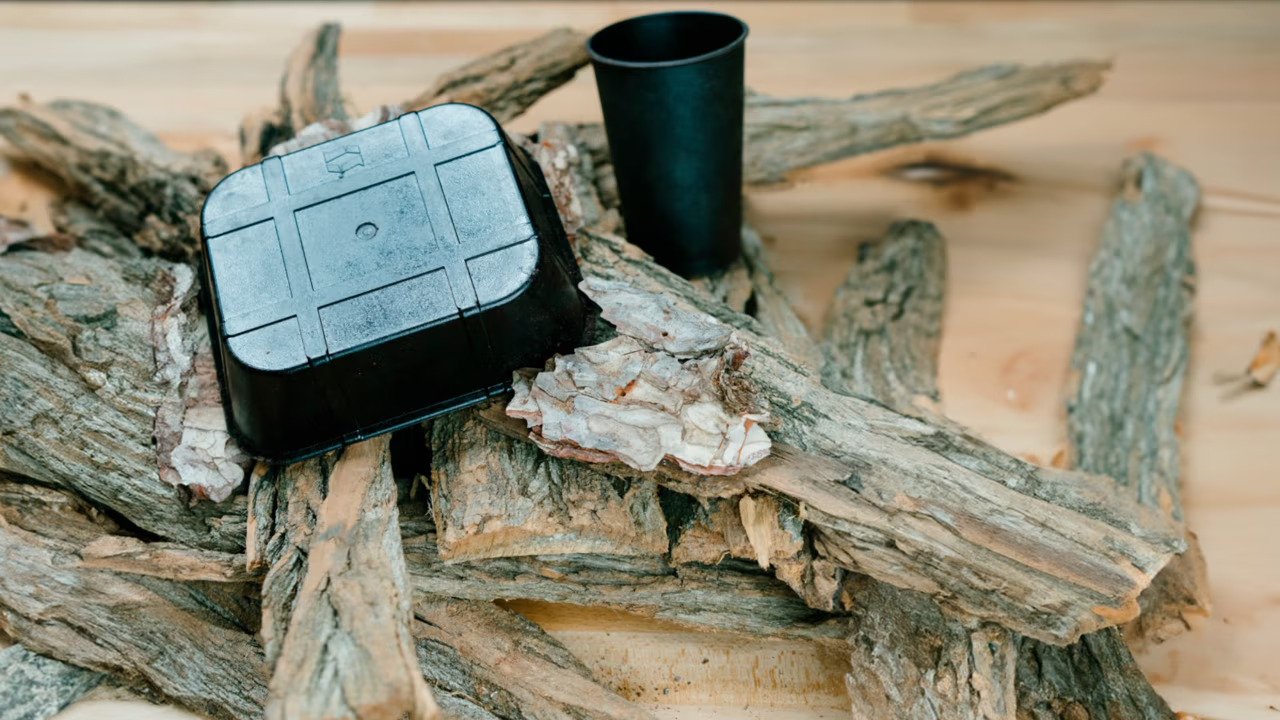New Bark Packaging Cuts Emissions, Replaces Plastic
June 6, 2024

One startup has made packaging that produces six times fewer CO2 emissions than traditional plastic by “thinking inside the bark.”
Bpacks uses tree bark, an underutilized natural resource, to produce rigid packaging.
The company was founded in 2022 and registered in the UK, with their R&D center located in Serbia.

Let’s get to know their research better-
- Raw Material: Bpacks sources bark, a timber industry by-product, to create 100% bio-based packaging (50-70% bark).
- Properties: Studies show that bark extracts have antimicrobial properties, adding a bonus layer of functionality to the packaging.
- Application Areas: Bpacks’ initial target is rigid food packaging, including fruit, vegetables, meats, and fast-food containers. They are also exploring applications in cosmetics and detergents.
- Feasibility of Implementation: Their technology can be integrated into existing production lines as it is compatible with equipment used for plastic packaging production.Bpacks is currently in talks with two companies for a pilot production run.
- Leadership: Mikhail Skalkin, Lev Bolshakov, and Nikolay Semenov lead the team, bringing a mix of entrepreneurial, financial, and technical expertise. They’re joined by Aleksandra Nešić, who specializes in plant-based active substances.
- Production and Patents– They are currently in talks with two companies (not disclosed yet) for a pilot production run and testing to bring their sustainable packaging to market. Additionally, they are working on patenting their technology and plan to expand production once secured.
- Impact on Environment: Their packaging is 100% biodegradable, recyclable, and compostable. It decomposes in moist soil within 1-2 months or within a week in active compost, enriching the soil. It also emits up to six times fewer CO2 emissions than traditional plastic production.
We discovered this startup while assisting a food and beverage company in their search for 100% biodegradable, food-compatible packaging as part of our open innovation efforts. You can find more food and beverage startups through our interviews with their founders here- https://www.greyb.com/scouted/

